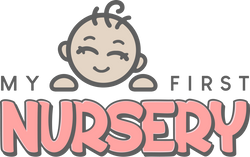
How To Make A Baby Happy? And Debunking Myths
How To Make A Baby Happy? And Debunking Myths
Bringing a baby into the world is an exhilarating journey filled with joy, wonder, and perhaps a hint of apprehension. As expectant parents, you’re eager to give your little one the best start in life, and ensuring their happiness is paramount. But amidst the plethora of advice and old wives' tales, navigating the path to a content and confident baby can sometimes feel overwhelming. Fear not! We're here to debunk myths, share insights from the science of parenting, and provide practical tips to nurture a happy baby from pregnancy through infancy.

The Science of Baby Happiness
Newborns are hardwired to seek closeness with their caregivers. This instinctual bond fosters feelings of security and love, triggering the release of oxytocin, aptly dubbed the "love hormone." This magical compound not only nurtures your baby's brain development but also contributes to their overall happiness and confidence. Contrary to the myth that excessive attention spoils babies, meeting their needs for love and comfort lays the foundation for a calmer, more resilient child.

Pregnancy Preparation
Believe it or not, your baby's brain development kicks into high gear even before their grand entrance into the world. Take advantage of this critical period by indulging in moments of relaxation and bonding. Engage in soothing activities like talking to your baby, reading aloud, gentle belly rubs, and even playing some tunes. Encouraging other family members to join in further strengthens the early bonds between your baby and the entire family unit.

Meeting Your Bundle of Joy
The moment you cradle your newborn against your skin is pure magic. Skin-to-skin contact not only comforts your baby but also fosters an intimate connection between parent and child. Whether you opt for breastfeeding or bottle feeding, this initial bonding experience is invaluable. Breastfeeding, in particular, triggers a surge of oxytocin in both mother and baby, deepening the bond and promoting a sense of closeness.
The Early Days
As you settle into parenthood, attuning yourself to your baby's cues becomes second nature. Keeping your baby close allows you to decipher their signals for hunger, discomfort, or simply a need for cuddles. Responding promptly to these cues reassures your baby, fostering a sense of security and reducing crying episodes. Whether breastfeeding or bottle feeding, hold your baby close, maintain eye contact, and cherish these intimate moments of connection.
Finding Your Rhythm
Parenting is a journey of discovery, and finding your rhythm takes time. Embrace the process of understanding your baby's unique needs and preferences. Responsively meeting these needs not only supports their brain development but also cultivates a deep sense of security. Contrary to the myth of rigid routines, flexibility and responsiveness pave the way for a harmonious parent-child relationship.

Debunking Myths
Let's set the record straight on a couple of common myths. Firstly, leaving babies to self-settle doesn't foster independence; instead, responsive caregiving nurtures a sense of security, laying the groundwork for future independence. Secondly, while toys have their place, nothing compares to the power of human interaction. Engage with your baby through eye contact, conversation, and smiles – these simple gestures stimulate oxytocin release and promote healthy brain development.
❌ Myth: Babies become spoilt and demanding if they are given too much attention.
✅ Reality: Meeting babies' needs for love and comfort fosters calmness and confidence.
❌ Myth: It’s important to get babies into a routine, as this makes your life easier.
✅ Reality: Young babies thrive on responsive caregiving, not rigid routines, which ultimately reduces stress for both baby and parents.
❌ Myth: You should leave babies to settle alone so that they learn to be independent.
✅ Reality: Responsively cared-for babies develop a sense of security, which lays the foundation for future independence.
❌ Myth: Babies benefit from lots of toys to help them learn.
✅ Reality: Human interaction, including talking, listening, and smiling, is paramount for healthy brain development, surpassing the importance of toys.

Final Thoughts
In the whirlwind of parenthood, it's easy to succumb to the pressure of buying fancy gadgets and toys. However, the most valuable gift you can give your baby is your unwavering love and care. Remember, happiness isn't measured by material possessions but by the strength of the bonds you forge with your little one. So, cherish each moment, trust your instincts, and revel in the journey of parenthood. After all, the happiest babies are those cradled in the arms of loving parents.
